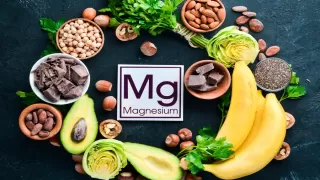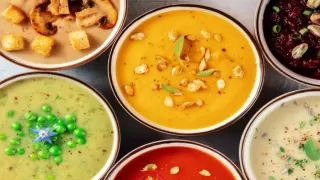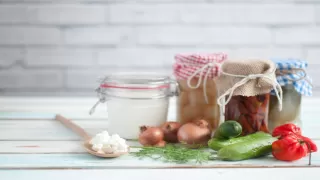You must include these iron-rich foods in your winter diet: Iron is a mineral that is essential for various bodily functions. It is an important component of hemoglobin, a protein in red blood cells that is responsible for carrying oxygen throughout the body. Iron is also important for energy production, immune function, and proper growth and development.
Consuming iron-rich foods is generally beneficial for health, regardless of the season. However, during the winter, there are a few reasons why this may be especially important. Cold weather increases the risk of developing seasonal illnesses like colds and flu, which can lead to anemia due to increased iron requirements during infections.
Additionally, some studies suggest that iron levels may decrease slightly in individuals during the winter months, due to decreased sunlight exposure and certain changes in diet. Including iron-rich foods in your diet can help maintain adequate iron levels, which is important for optimal immune function, increased energy levels, and prevention of iron deficiency anemia. Read on as we share a list of iron-rich foods that you can include in your diet this winter.
9 Iron Rich Foods You Must Include In Your Winter Diet:
1. Spinach
Rich in iron, spinach is a great addition to your winter diet. Iron helps in the production of red blood cells, which increases oxygen circulation in the body and prevents fatigue.
2. Pulses
Pulses are not only rich in iron but also provide a good amount of protein. Including pulses in your winter diet can help maintain energy levels and maintain muscle health.
3. Dried Apricots
Dried apricots are a portable and iron-rich snack option for winters. They are also a good source of vitamin C, which helps in the absorption of iron in the body.
4. Pumpkin Seeds
Rich in iron, pumpkin seeds are an easy and nutritious snack option for winters. They also contain other minerals, such as magnesium and zinc, which support the immune system.
5. Tofu
A plant-based source of iron, tofu is a suitable choice for vegetarians and vegans. Including tofu in your winter diet ensures a good supply of iron without the need for animal products.
6. Quinoa
Quinoa is a gluten-free grain that contains considerable amounts of iron. It is also rich in fiber and essential amino acids, making it a nutritious addition to your winter diet.
7. Scallop
Oysters are a great source of iron and other essential minerals like zinc and selenium. Consuming oysters in limited amounts can help strengthen the immune system and improve overall health.
8. Dark Chocolate
Surprisingly, dark chocolate can be a good source of iron. Choose dark chocolate with a high percentage of cocoa to reap the benefits while enjoying the delicious treat.
9. Gram
Chickpeas are not only rich in iron but also provide a good amount of protein and dietary fiber. Including gram in your winter diet can help maintain healthy iron levels in the blood.
Adding these iron-rich foods to your winter diet can help prevent iron deficiency and promote overall health. Iron is essential for maintaining energy levels, supporting the immune system, and preventing anemia symptoms such as fatigue and weakness.























